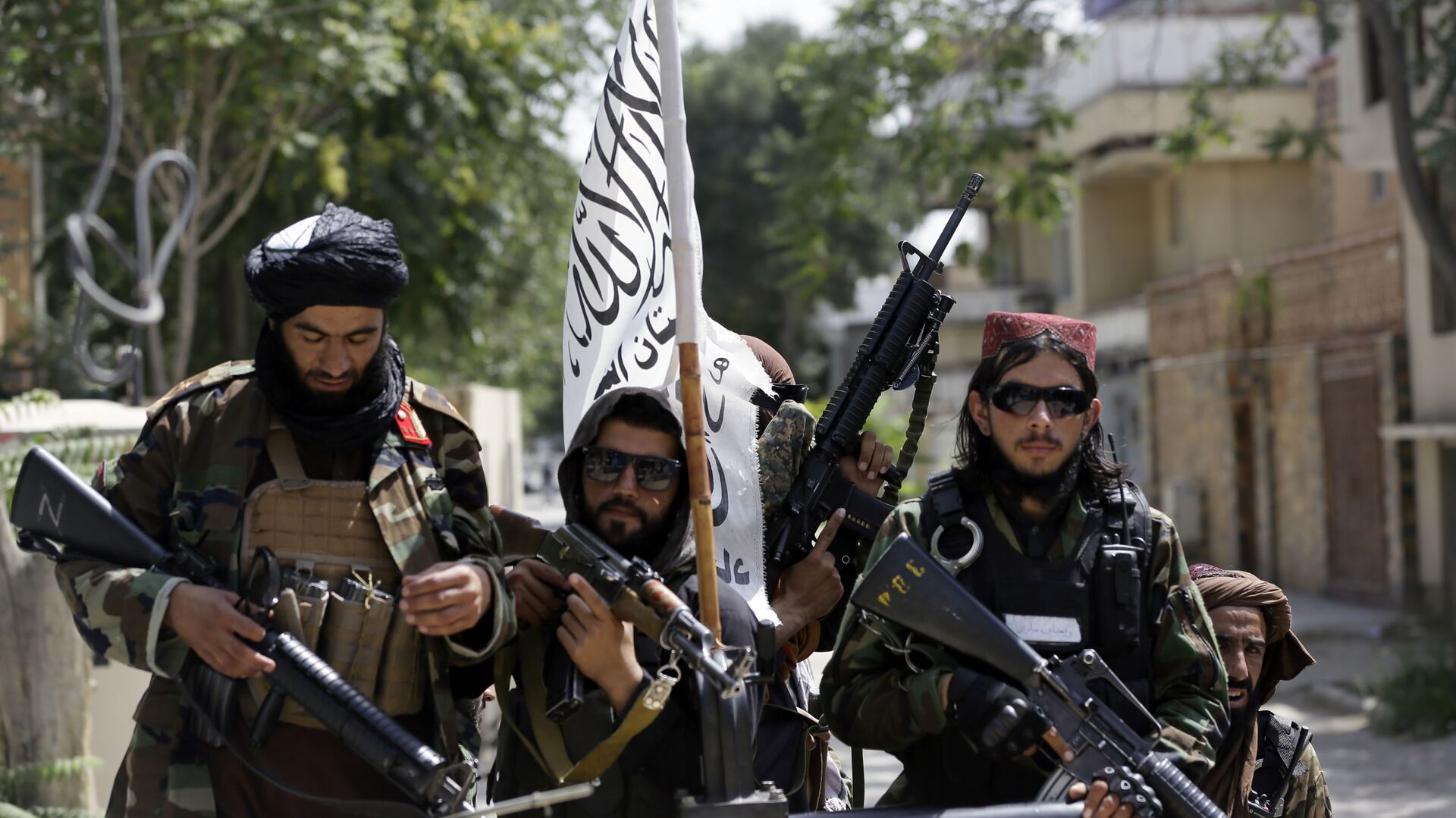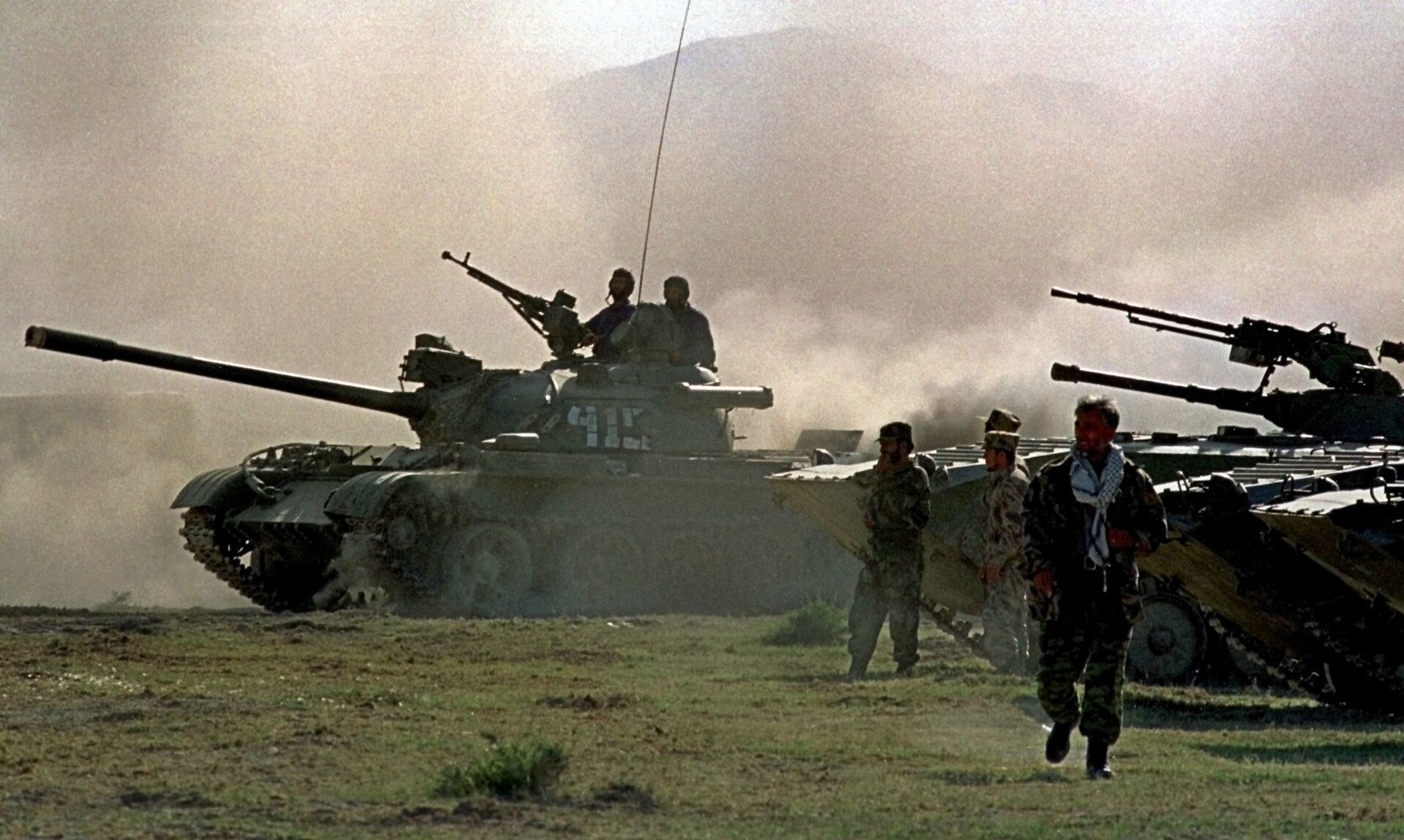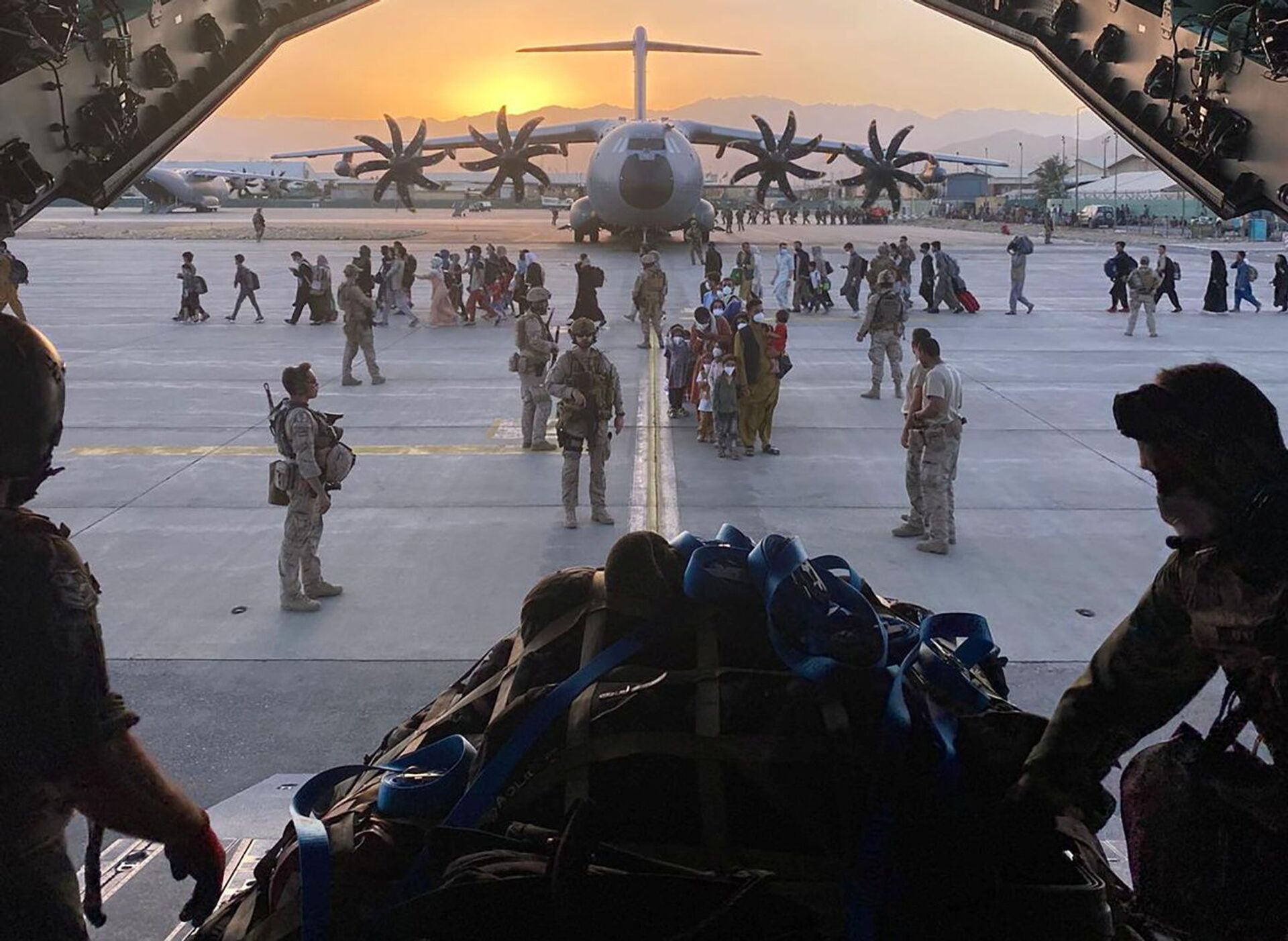Afghan Civil Servants Once Employed by Taliban May Reportedly Be Exempt From US Terror-Related Bans

© AP Photo / Rahmat Gul
Subscribe
The Biden administration expects over 95,000 Afghan refugees to be brought to the US over the next year, in the wake of the US troop withdrawal from the country that cleared a path for Taliban* to reclaim power. Republicans have voiced concern about vetting procedures and who is eligible for US citizenship.
Some Afghan civil servants who were formerly employed by the Taliban government from 1996 to 2001 may be exempt from terror-related inadmissibility grounds (TRIG) and granted entry to the US, according to a draft document cited by Fox News.
The US Citizenship and Immigration Services (USCIS) planning document, the status of which is "pre-decisional," purportedly sheds light on the intention of the Department of Homeland Security to issue a memorandum allowing the afore-mentioned Afghan civil servants to dodge TRIG bans if they fulfil specific background and screening requirements.
According to TRIG, any individual who is a member of a “terrorist organisation” or who has engaged or engages in terrorism-related activity as defined by the Immigration and Nationality Act (INA) is “inadmissible” for entry to the US. This renders the individual, accordingly, ineligible for most immigration benefits. Definition of terrorism-related activity "is relatively broad and may apply to individuals and activities not commonly thought to be associated with terrorism," according to USCIS.

Northern alliance armor warm up their engines, during preparations for an offensive against Afghanistan's Taliban movement in Takhar province, some 15 km (9 miles) from the Tajik-Afghan border in Afghanistan, Thursday, Oct. 4, 2001. The opposition alliance in northern Afghanistan is coordinating its offensive with the United States, an opposition spokesman said Wednesday, and it is expecting fresh arms deliveries from two of its strongest allies in the fight against the Taliban: Iran and Russia.
© AP Photo / Rustam Nazari
TRIG would be likely to ban those Afghans seeking resettlement in the US who worked under the Taliban regime from 1996 until it was removed from power by the US invasion in 2001 in the wake of the 9/11 attacks.
"Many individuals who worked in civil service positions before the declaration of the Islamic Emirate of Afghanistan in 1996 continued to do so after the declaration. Some did so under duress or other situations of hardship,” says he document cited by the outlet.
It goes on to claim that some of these individuals “at great personal risk” from the Taliban attempted to use their positions in humanitarian capacities.
“Some of these civil servants later worked for or helped the International Security Assistance Force, the US government or the Afghan government that was established in Dec. 22, 2001," states the document.
After the Taliban regained control of Afghanistan in the wake of the US hasty withdrawal, thousands of Afghans were airlifted out of the country and brought to the US. Many of these people had aided the US forces and were deemed to be "at risk" from the militant’s retaliatory punitive action.
The Biden administration earlier revealed it was planning to allow upward of 95,000 Afghans to arrive in America during this fiscal year, assisting in resettling them via $6.3 billion in emergency funding alongside the $28.6 billion disaster relief bill following a spate of recent hurricanes and wildfires.
The bills are part of the larger stopgap funding measure, known as a continuing resolution, passed by the Senate and House earlier in October to stave off a partial government shutdown. A previous TRIG exemption authority for Afghan civil servants had been finalised in January 2017 during the administration of then-President Barack Obama. However, it was never published or applied to any refugees, the cited document says.

Afghan collaborators, their families, Spanish soldiers and members of the embassy board a Spanish military plane as part of their evacuation, at the Hamid Karzai International Airport in Kabul, Afghanistan, August 27, 2021
© REUTERS / SPAIN MINISTRY OF DEFENSE
The USCIS believes that the currently anticipated surge in filings from Afghan nationals for admission to the US necessitates allowing Citizenship and Immigration Services officers to exempt terror-related inadmissibility grounds stemming from “employment by the Taliban as civil servants between Sept. 1996 and Dec. 2001.”
Amid voiced concerns regarding the vetting procedures, a US administration official was cited as insisting that the memo would not impair screening and vetting processes currently employed by law enforcement and counterterrorism officials. Evacuees will still be required to pass "all background checks and pose[s] no danger to the safety and security of the United States, and other threshold requirements."
"The effect [of the memo] is that people who worked as doctors, grade school teachers, civil servants or low-level government employees wouldn’t automatically be barred from ever entering the United States because they worked in those professions," stated the official.
The Biden administration has been fending off GOP criticism over its vetting processes allowing Afghans not directly related to the US mission in the war-torn country to enter America. Rep. Matt Rosendale, R-Mont., was cited by Fox News as saying earlier:
“This is why I spoke out even before the withdrawal began, you could see it looming on the horizon that this administration was going to use this as an excuse to bring in hundreds of thousands of people out of Afghanistan and try to relocate them into the United States without proper vetting."
The White House, which recently raised the refugee cap to 125,000 for FY 2022 after it was reduced by ex-President Donald Trump to 15,000, has defended what it has described as its "multi-layered" vetting and screening processes conducted by intelligence, law enforcement, and counterterrorism officials from multiple agencies.
"We screen and vet individuals before they board planes to travel to the United States and that screening and vetting process is an ongoing one and multilayered," DHS Secretary Alejandro Mayorkas said last month.
*Terrorist groups banned in Russia and many other countries
